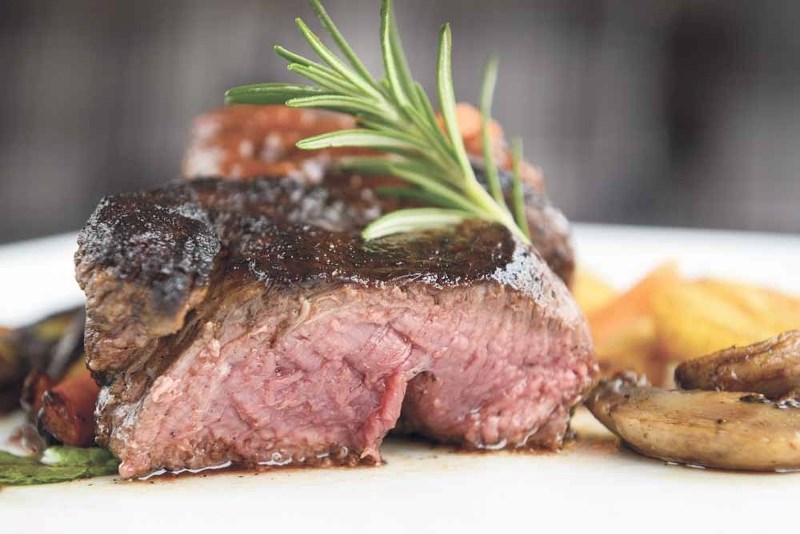A warning from the World Health Organization that there is likely a link between processed meats and cancer, and possibly a link between red meats and cancer, spread quickly online last week.
And although the classification is somewhat new, some locals have already been mindful about how much processed and red meat they consume in their diets, based on past reports and research.
Erin Cherniwchan says her family has been “almost completely processed meat free” for years, and that her two young children don’t consume any processed meats.
“I have a family history of colorectal cancers, so the link between processed meats and illness is even higher for us,” says Cherniwchan. In 2013, her dad passed away after battling colon cancer, while her uncle and numerous other relatives have been sick with stomach and colorectal cancers too, making the threat even more real.
“For the past 10 or so years, I've been careful to do everything to prevent it, including not eating foods linked to higher risk of getting sick. I make a point to read a lot of health news and keep on top of studies,” says Cherniwchan. “The link between regular consumption of processed meats and colorectal cancer has been established for some time. I think from what I read, that the WHO based their recommendation on approximately 800 studies that came to the same conclusion.”
“Red meat refers to all mammalian muscle meat, including, beef, veal, pork, lamb, mutton, horse, and goat,” according to the WHO. And processed meat refers to meat that has been transformed through salting, curing, fermentation, smoking or other processes to enhance flavor or improve preservation.
The always-popular hot dogs, ham, beef jerky, and canned meats all fall into the processed meat category.
Rich Smith, executive director with the Alberta Beef Producers, says the provincial group was aware beforehand that the report on the classification of red meat and processed meats was coming out, and admits it “created some stir.”
It’s nothing new that high consumption of processed meats isn’t recommended, says Smith, adding, it’s also not advisable to eat red meat three meals a day, seven days a week. He hopes that people keep the information in the report in perspective.
He says that the old adage “all things in moderation,” is probably very good advice to follow. “People don’t eat bacon because they think it’s healthy . . . they view bacon as a treat,” he says, with a laugh.
“Be balanced and follow food guides,” says Smith, adding he hopes people take the same balanced approach to the information they read.
There have been suggestions that small increases in the risk of several cancers may be associated with high consumption of red meat or processed meat, according to WHO, but the main type of cancer associated with this food choice is colorectal cancer.
“Although these risks are small, they could be important for public health because many people worldwide eat meat and meat consumption is increasing in low- and middle-income countries,” says the WHO website.
Cherniwchan says it’s fairly easy to avoid processed meats, and her family often purchases fresh meats to cook with instead. She also chooses to send her children to a daycare that doesn’t serve processed meats, and lists it on registration forms as an allergy for her children. Instead, her protein of choice is usually chicken, and sometimes fish.
She admits that cooking with fresh meat isn’t always cheap, but it’s a choice the family makes. “We can often get a supper and next day lunches from a package of chicken breasts,” says Cherniwchan.
Krystle Cardinal says her family also tries to avoid processed meats that contain sulphites and nitrates, along with other preservatives and additives.
“We have a lot of cancer history in our family, like I’m sure most do. There is definitely a relation to what’s in our foods/water and cancer and diseases,” she says. “Our world is very toxic.”
While grocery shopping, Cardinal reaches for the products that appear to be more naturally processed. And if the family is out at a function, they will try to eat the products they feel have fewer preservatives and additives.
“Sometimes, it is hard to avoid. And eating health/clean is a lifestyle, not a prison sentence, so we indulge once in a while and just try to find that balance,” says Cardinal.
And it’s not only the type of meat that matters, but also possibly how that meat is prepared.
“High temperate cooking methods generate compounds that may contribute to carcinogenic risk, but their role is not yet fully understood,” says the WHO website.
Red meat, based on some evidence, has been classified as Group 2A o r probably carcinogenic to humans, while processed meats have been classified as Group 1, carcinogenic to humans. This means that there is “sufficient evidence of carcinogenicity in humans. In other words, there is convincing evidence that the agent causes cancer.”
Other things that fall into Group 1 are smoking tobacco and asbestos, but, just because processed meat falls into the same category, doesn’t mean it is equally dangerous. The classification describes the strength of scientific evidence about an agent causing cancer, rather than assessing the level of risk.
Other information on the WHO website states, “Eating red meat has not yet been established as a cause of cancer. However, if the reported associations were proven to be causal, the Global Burden of Disease Project has estimated that diets high in red meat could be responsible for 50,000 cancer deaths per year worldwide.
These numbers contrast with about 1 million cancer deaths per year globally due to tobacco smoking, 600,000 per year due to alcohol consumption, and more than 200,000 per year due to air pollution.”



